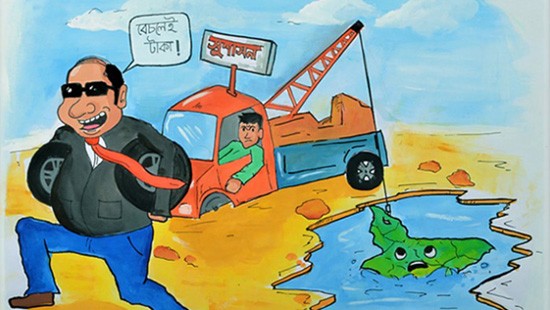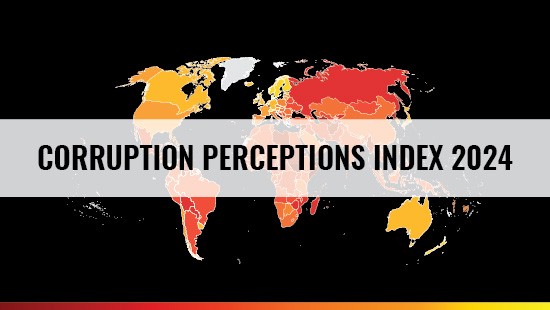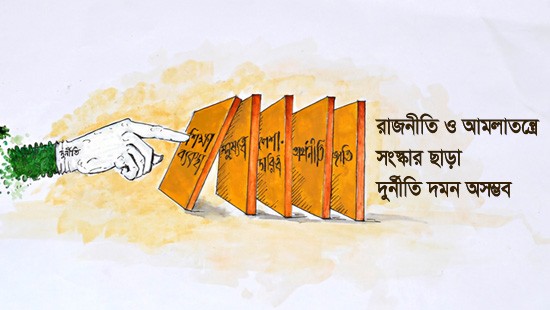Published: 13 April 2013
Election time government: Getting to yes?
Iftekharuzzaman
AT the core of the on-going political crisis of destructive and blood-letting hartals, tension and conflict at the expense of public interest, insecurity and uncertainty that can be hugely detrimental to the progress of Bangladesh towards democracy, is the tenth parliamentary election due at the end of the tenure of the government.
Politicians all over the democratic world engage in politics for going to power through duly held free, fair and credible elections that ensure unrestricted and spontaneous participation of all voters and contending parties. The result of such elections, or in other words who will gain the mandate to form the government, and who will be given the responsibility to be in opposition to hold the government to account, is left to the people.
In our case the electoral game is played from a zero-sum platform of a pre-determined result — one side stubborn to have it pre-determined that they will continue to hold power, while the other is determined to go to power that was lost the previous time. That the term “power” also entails responsibility and that being in opposition is also meant to exercise power and responsibility, particularly to ensure that the government is accountable to the people through them, is almost totally lost.
Over the years since restoration of democracy unseating the authoritarian regime, our leaders on both sides of the political spectrum have worked hard to have in place an election structure and process that can ensure only victory. Losing in election is almost absent in the political parlance to an extent that is akin to a “mutually assured destruction,” although it is only the people who are exposed to this destructive strategy, as painfully demonstrated in recent skyrocketed political violence.
The economy is on the verge of being in shambles; business, investment and industry are faced with unprecedented loss; key fundamental rights of people like life, safety, liberty, health, education are faced with unprecedented jeopardy; a whole generation of children whose schools and scores are exposed to indiscriminate risks on a regular basis is growing with a knowledge of violence and insecurity as way of life.
Can there be any light at the end of the tunnel? The answer is no and yes. No, if the mutual distrust, tension and hatred between the major contenders continue. In that case the end-result can help anything but democracy and democratic aspirations of the people.
The answer can be yes, if like the optimist in me says, there is a realisation at the top that enough is enough; that there is no option but to look for a mutually acceptable solution. They will have to do so because they are in politics, as we understand, for the good of the people and democracy; they are also the ones who don’t need to be reminded of the ill-effects for the nation in general and for them in particular, of the failures in the past to ensure peaceful transition.
In this context Transparency International Bangladesh (TIB) has proposed a framework and process as a basis to work for “getting to yes” towards an election-time government (ETG) that would conduct election not only in free, fair and credible manner but also ensure participation of all parties. This comes at a time when the ruling side is determined, as per 15th Amendment to the Constitution, to hold the election under its own authority, which is unacceptable to the opposition, while for the latter the now-unconstitutional caretaker government is the only option, a non-starter for the government. The proposal also aims to address crucial concerns over conflict of interest and level playing field.
At the centre of the TIB proposal is a key role of the parliament and public representatives. The first step is a Parliamentary Consensus Committee (PCC). The speaker may call upon the two major parties/allies to form the PCC consisting of equal share in a total of four or six or any other mutually agreeable number of elected representatives from each side. The members of PCC would represent political acumen, mutual tolerance and respect. Once the speaker has received the list he will convene the first meeting of PCC, in whose work the speaker will have no further role.
The Committee will draw up a list of an 11-member ETG, one of whom will be the head, the remaining ten to be designated by each side in either equal number of five each or in a proportion reflecting respective popular votes received in elections to the 7th, 8th and 9th Parliaments.
The head of the ETG will be identified by PCC in consultation with respective parties following one of the two options. One, to first select 10 members who in consultation with PCC will select a consensus head of ETG either from elected representatives, or an unelected non-partisan individual of high integrity and reputation for credible contribution to public life. The second option is to first identify the head, who in consultation with PCC will then identify the remaining 10 members.
The PCC my start work at least 30 days before the end of the tenure of the parliament and complete its work in time so that once the speaker has submitted the list of ETG to the president, the latter can dissolve the parliament and call upon the ETG to take over. In case the PCC is not in a position to identify a consensus individual as head of ETG, they may draw a panel of three for the president to select one.
In selecting the 10 cabinet members, there can be three options maintaining the two above-mentioned ratios of equal or proportionate to popular votes. In the first option, all 10 members can be from elected representatives; second, a combination of both elected representatives and un-elected non-partisan individuals; or third, all 10 can be un-elected non-partisan individuals.
The PCC may elect two co-conveners representing both sides to convene and conduct meetings and function as spokespersons to communicate their work to the people in the interest of transparency, ensuring necessary confidentiality and credibility of the process. The office of the secretary of the Parliament may provide secretarial support to the Committee.
The tenure of ETG will be 90 days, provided that only in case of extraordinarily grave natural disaster the possibility of extension of the tenure can be considered apropos Article 106 of the Constitution. The head of the ETG will arrange cabinet portfolios in consultation with the 10 members, whom s/he will lead and guide with advice of the president, if necessary. No member of ETG may be elected to the 10th Parliament, nor gainfully employed under the new government’s tenure. The jurisdiction of ETG will be restricted to conduct of the election ensuring full independence of the Election Commission and running only the routine matters of the government.
TIB is aware that the above comes as no magic wand to resolve the on-going crisis, but may provide a basis to start dialogue to get to yes. If agreed upon, these will require the necessary constitutional amendment, which may also be preceded by referendum.
The writer is Executive Director of Transparency International Bangladesh.
This article has been published in on 13 April, 2013
on 13 April, 2013
Link







